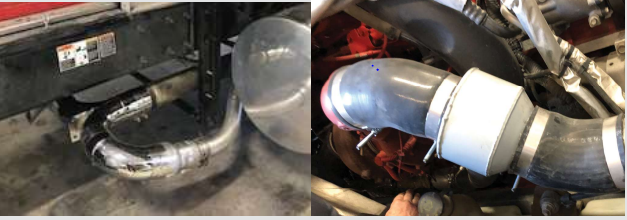A new technology designed to revolutionize the performance of diesel engines is helping fleet owners achieve 2027 EPA emissions standards right now. Today, SPI.Systems Corporation announced the completion of dynamometer testing that proves its SPIER SystemTM makes it possible for existing and new diesel-powered trucks to meet emission control and fuel economy requirements proposed by the federal government earlier this year. The independent testing of SPIER was completed by Faurecia Clean Mobility, a division of Forvia Corporation, at their laboratories in Columbus, Indiana.
“Testing is a key part of our Already Green program for heavy duty fleets,” said SPI.Systems founder and CEO Jack Schickler. “Most trucking companies are desperately searching for ways to comply with new EPA rules that would require fleets to reduce NOx emissions by as much as 40% by 2027. The industry needs solutions that can be implemented today. Electric vehicles will play a role, but the infrastructure to support long-haul trucking does not exist yet and it won’t for many years to come. Adopting technologies such as the SPIER SystemTM as an upfit to existing trucks can be far more impactful than waiting for other technologies to be ready for widespread adoption. With SPIER, we can help fleets to be ‘already green’ today."

SPI.Systems has conducted extensive testing over the past three years and consistently delivered the following results:
• MPG improvement up to 20%.
• NOx at engine-out reduction of 30%.
• EGR activation reduction of 30 points.
• DEF usage reduction of 30%.
• Power improvement of 10-20%.
• Projected annual fuel savings of more than $1 million per 100 trucks.
Leonard’s Express, which has been recognized as one of America’s Top Green Fleets, has been using SPIER on its trucks for three years and has been instrumental in the development of the technology. Other long-haul fleets have now joined the Already Green program with the goal of promoting clean air and reducing pollution from heavy-duty vehicles. And Kettering University – one of the nation’s top mechanical engineering programs – recently confirmed its intent to collaborate with SPI.Systems to continue testing and improving the SPIER SystemTM.
“We’re excited about our new collaboration with SPI.Systems,” said Dale Pilger, Senior Director of Philanthropy – Corporate and Foundation Relations at Kettering University. “I have never met anyone more tenacious than Jack Schickler. He is driven by a true and unwavering belief in the art of the possible!”
The SPIER SystemTM is fully patented, with filings complete in the majority of truck manufacturing countries. SPIER can be used to reduce emissions on any diesel truck, from current models dating as far back as 2010, including highway and work trucks. Installation requires about 6-8 hours for most trucks from a kit of parts supplied by SPI.Systems. The cost is structured to deliver ROI in less than one year.
SPI.Systems is also working to apply SPIER to other diesel applications, as well as other power sources that do not burn fossil fuels. “There is no reason to limit the thinking to one way of unlocking the internal energy of sources that surround us,” Schickler explained. “That includes fossil and non-fossil sources just waiting for our creativity, such as fuel cells, electrical generators and motors. It all comes down to rapid release of internal energy.”



_-_127500_-_fd58817006781b0655e77d342459c13ff31c7a97_yes.png)




